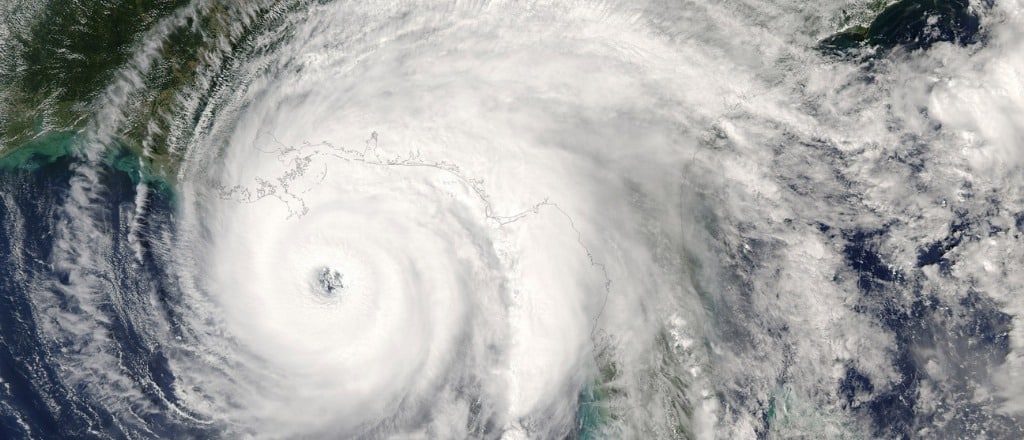 How to Prepare for Tropical Storms and Hurricanes During COVID-19
How to Prepare for Tropical Storms and Hurricanes During COVID-19
In some parts of the country, people can expect to see a tropical storm or hurricane in any given year. But a violent weather event can catch communities off guard if they aren’t used to being in a storm path.
While hurricanes and tropical storms tend to affect coastal regions the most, that isn’t always the case. A tropical storm or hurricane can leave a path of devastation for miles, which is what happened with Hurricane Camille when it traveled over 275 miles inland. Or Superstorm Sandy that ripped through the entire northeast region.
This year experts are warning that climate change and COVID-19 could create a perfect storm that makes handling a natural disaster more difficult. Preparing for a tropical storm or hurricane is more important than ever, and you’ll find a lot of great advice on Ready.gov. We’ve taken the guidelines and narrowed it down to 5 essential preparation measures that everyone in the danger zone should take during the COVID-19 pandemic.
Pack a Go Bag Ahead of Time With Extra Supplies
Long before hurricane season begins (June 1st) every family should pack a go-bag. This is a large bag or backpack that has emergency supplies such as a first aid kit, handheld radio, flashlight, batteries, etc. For a full list of recommended emergency supplies check out the National Weather Service disaster supplies guide.
In light of the COVID-19 pandemic, families need to make sure their go-bags have a few extra supplies this year. You should include:
- Two face masks for each family member
- Latex gloves
- Thermometer
- Hand sanitizer
- Hand soap
- Disinfectant wipes
These supplies will help you prevent the spread of coronavirus even if you’re at a shelter.
Keep Non-Perishable Food and Water on Hand
It’s always a good idea to have water and non-perishable food on hand because stores aren’t typically open when a storm is about to hit. COVID-19 is also posing an additional problem. The last thing you want is to be in a crowded store fighting to get food supplies where the chance for infection is much higher.
Keeping water and food with your emergency supplies is more important now than ever before. Aim to have at least one gallon of water per person per day and three days worth of non-perishable food for each individual.
Plan Out Escape Routes That Minimize Contact
When an evacuation order is made thousands of people take to the highway at the same time causing extensive traffic jams that can lead to dangerous delays during an impending storm. Plus, if you have to make a stop on a busy road you’ll come in contact with more people.
It’s often better to take back roads and avoid major highways as much as possible while evacuating. Try to plan stops along the way so that they aren’t at a major intersection or in a town, and pick up food at a drive-through.
Secure a Place to Shelter
One of the biggest changes for the 2020 hurricane season is protecting people at public shelters. Typically, shelters are packed to maximum capacity to protect as many people as possible. Because of the coronavirus space may be limited to reduce the chance of spreading the infection. The shelter location may have also moved to accommodate more people.
Anyone who can secure a place to stay that’s well out of the storm path should do so well in advance. Staying with family or friends is usually the best option, particularly during a pandemic. Just make sure to isolate yourself from others in case you are infected but asymptomatic since testing may not be readily available.
The next best option is to stay in a hotel out of the storm’s path if you have the funds to do so. Do your best to self-isolate and minimize contact with others, even hotel staff.
Know Who to Call During an Emergency
Do you know who to call if you lose electricity during emergencies? What if you start to experience COVID-19 symptoms? Do you have local and national emergency call centers on speed dial?
In an emergency, every minute counts. Knowing who to call ahead of time can make a big difference for the safety of yourself, your family, and your property.
Numbers to Know Before a Storm
Family Members/Friends/Coworkers
We live in an age where smartphones make it easy to call a contact without dialing their number. As a result, it’s easy to forget the phone numbers of people we call on a regular basis. It may seem unnecessary on a normal day, but keeping a hard copy of your contact list can prove to be highly beneficial during a natural disaster.
Local Weather Service
The National Weather Service has stations all over the U.S. This allows the NWS to provide local weather alerts. Go ahead and find the nearest station, jot down the contact info and sign up for text message alerts.
Local Police and Fire Department
Calling the police and fire departments directly may provide helpful information during a storm or hurricane.
Local Hospital
Writing down the number for your local hospital is always a good idea, but even more so during the pandemic. If you have a medical need that isn’t an emergency you can call ahead to find out what the COVID-19 protocol is before arriving and how long the wait will be. And if you start experiencing symptoms after evacuating the local hospital can help you get checked out safely.
FEMA
The Federal Emergency Management Agency (FEMA) helps during and after a natural disaster. FEMA contact information and communication tips are available on the agency’s website.
Utility Provider
For some health conditions, it’s absolutely vital to have electricity during emergencies. When widespread power outages occur thousands of people can be affected at once, which means the sooner you report issues the better.
At Spark Energy, we provide outage numbers on our website. We encourage customers to write these numbers down so that you still have them if there is no Internet access. Check with your electric, gas, and water companies to determine which number is best during a storm.



